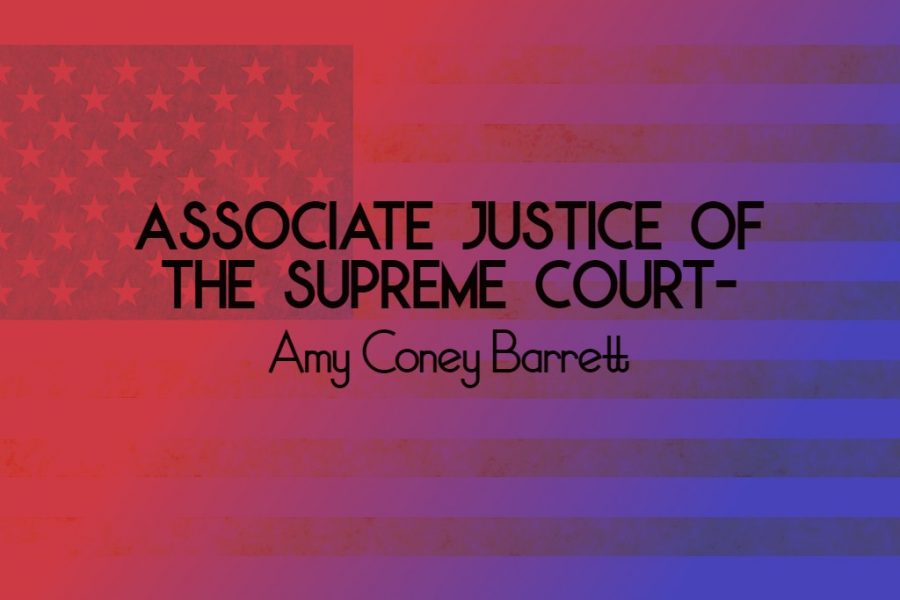Associate Justice of the Supreme Court – Amy Coney Barrett
Justice Amy Coney Barrett Was Confirmed To Replace Ruth Bader Ginsburg On The US Supreme Court
October 27, 2020
On Sept. 26, 2020, after the recent death of the previous Associate of the Supreme Court — Ruth Bader Ginsburg, President Donald Trump announced the nomination of Justice Amy Coney Barrett to fill in the vacant position. Recently, the confirmation of the nominee, on Oct. 26, changed the Supreme court to a conservative-leaning 6-3, with 3 judges nominated by Trump.
Amy Coney Barrett is from the Republican Party and is a woman with strong right views. She was raised in a suburban community and studied in a catholic school. She later attended law school in Notre Dame. There are many facts about Barrett that make her a considerably unusual judge for the Supreme court, for example, “She’d be the only justice on the current court not to have attended either Harvard or Yale for law school.” Before being nominated by President Trump to become a federal appeals court judge in 2017, she was a law professor at Notre Dame for 15 years. Now she is confirmed to serve on the highest court for decades to come.
There has been overwhelming controversy since the nomination of Barrett, who is taking the place of RBG, a woman with drastically opposite ideas. One substantial subject of controversy is Barrett’s religious values, “…she’s been somewhat more vocal about her faith than other members, and faith became a flashpoint during her confirmation to be an appeals court judge.” This, combined with previous rulings the nominee has made, is a clear contradiction to the separation of church and state. NCR says, “Pro-choice feminists have made much of Barrett’s anti-abortion perspectives as proof that she is anti-feminist, but the issue extends beyond abortion. Barrett is not on record as a defender of women’s rights in any arena.” Some of her other rulings that were against environmental protections, consumer protection, history against health care, sexual assault, and immigration are making women have conflicted feelings about supporting her.
Not long ago, from Oct. 12 to 14, a hearing took place with the Senate before the confirmation of Barrett’s nomination. In the hearing, Democrats asked questions such as “issues like abortion, Obamacare, climate change and the possibility of a contested election…matters that are already at the high court or may wind up there soon.” However, during the first two days, Barrett dodged those questions.
(Deeper insight to questions asked: Washington Post, CNN )
The Republican Party has been going against their own practices and pushed the confirmation of ACB. Evidence shows that the nomination had been rushed mainly due to two reasons: to overturn the Affordable Care Act and to confirm a Republican-leaning Supreme court that would outlast the possible Democrat-controlled presidency. According to the U.S Senate records, with the 53-47 Republican majority over the Democrats in the Senate and now as Barrett in the Supreme court, future democratic acts will be extremely hard to pass.







